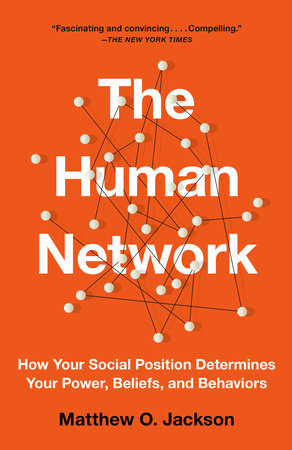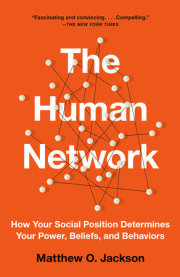From:
1 · Introduction: Networks and Human Behavior The More Things Change On December 17, 2010, Mohamed Bouazizi, a twenty-six-year-old street vendor in the dusty small city of Sidi Bouzid in central Tunisia, lit himself on fire. He did so as a desperate statement of outrage at the tyrannical government that had ruled Tunisia for more than two decades and repeatedly crushed any opposition. His family had long been outspoken against the government and he found himself regularly harassed by the local police. That morning, the police publicly humiliated him and confiscated his day’s produce. Mohamed had borrowed the money to buy his produce, and its loss was the last of many straws. Mohamed drenched himself in gasoline and burned himself alive in protest.
Decades ago, the several-thousand-person protest that quickly followed would have been the end of the story. Few outside of Sidi Bouzid would have even been aware that anything happened. However, videos of the aftermath of Mohamed Bouazizi’s self-immolation were impossible to contain and were quickly shared via social media and reported widely. News of the Tunisian and other governments’ oppression had already been spreading after confidential documents appeared weeks earlier on WikiLeaks. The Arab Spring that would follow was enabled by and coordinated via social media such as Facebook and Twitter as well as cell phones.1
Although the methods of communication were modern, ultimately it was a network of humans spreading news and outrage. What was new was how widely and quickly news could spread, and how people were able to coordinate their responses. But understanding what happened still boils down to understanding how news spreads between people and how their behaviors influence each other.
The size and ferocity of the resulting Tunisian protests toppled the government by mid-January. The insurgency had also spread to neighboring Algeria, and over the next two months erupted in Oman, Egypt, Yemen, Bahrain, Kuwait, Libya, Morocco, and Syria, and even Saudi Arabia, Qatar, and the United Arab Emirates. The successes and failures of the Arab Spring are open to debate. But the swift proliferation of protests throughout that part of the world was not only unprecedented but highlighted the importance of human networks in our lives.
As dramatic as recent changes in human communication have been, as Thomas Friedman’s quote above indicates, the world has shrunk many times before—in the wake of: the printing press, the posting of letters, overseas travel, trains, the telegraph, the telephone, the radio, airplanes, television, and the fax machine. Internet technology and social media are only the latest chapter in the long history of changes in how people interact, at what distance, how quickly, and with whom.
Yet even as networks of interactions between humans change, much about them is enduring and predictable. Understanding human networks, as well as how they are changing, can help us to answer many questions about our world, such as: How does a person’s position in a network determine their influence and power? What systematic errors do we make when forming opinions based on what we learn from our friends? How do financial contagions work and why are they different from the spread of a flu? How do splits in our social networks feed inequality, immobility, and polarization? How is globalization changing international conflict and wars?
Despite their prominent role in the answers to these questions, human networks are often overlooked when people analyze important political and economic behaviors and trends. This is not to say that we have not been studying networks, but instead that there is a chasm between our scientific knowledge of networks as drivers of human behavior and what the general public and policymakers know. This book is meant to help close that gap.
Each chapter shows how accounting for networks of human relationships changes our thinking about an issue. Thus, the theme of this book is how networks enhance our understanding of many of our social and economic behaviors.
There are a few key patterns of networks that matter, and so the story here involves more than just one idea hammered home. By the end of this book, you should be more keenly aware of the importance of several aspects of the networks in which you live. Our discussion will also involve two different perspectives: one is how networks form and why they exhibit certain key patterns, and the other is how those patterns determine our power, opinions, opportunities, behaviors, and accomplishments.
Copyright © 2019 by Matthew O. Jackson. All rights reserved. No part of this excerpt may be reproduced or reprinted without permission in writing from the publisher.




